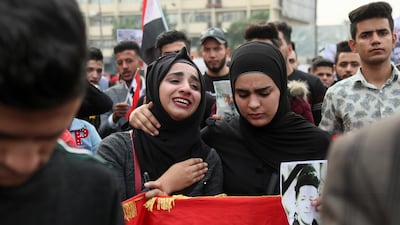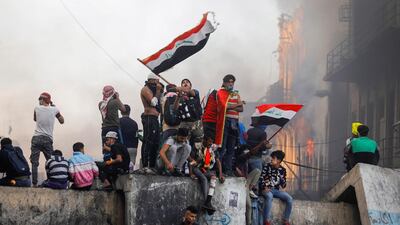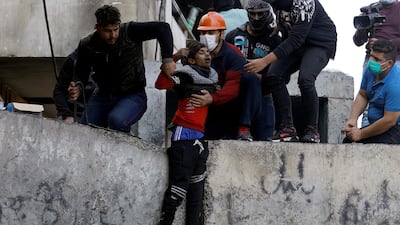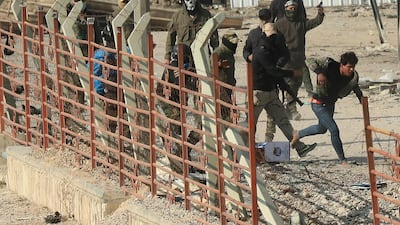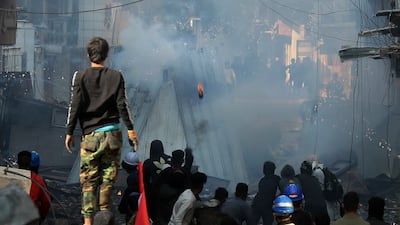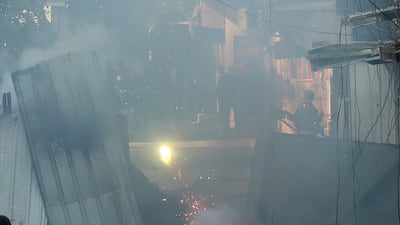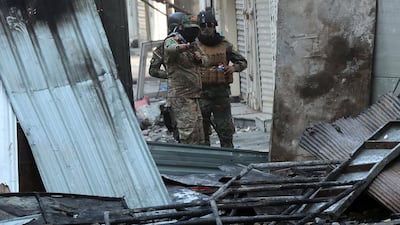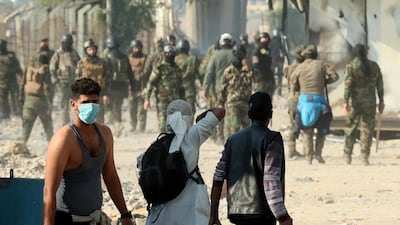The Iraqi Parliament on Sunday accepted the resignation of Prime Minister Adel Abdul Mahdi as a two-month uprising intensified in the capital and across southern Iraq.
The move is the latest attempt by the country’s elite to contain the mass protests, which began on October 1, demanding their removal.
The protest movement has since turned anti-Iranian, especially after security officials from Tehran visited Baghdad and instructed Iraqi officials to crack down on demonstrators.
Parliament Speaker Mohamed Al Halbousi said constitutional procedures were set in motion to elect a new prime minister.
“I ask the esteemed Parliament to fulfil the procedures for the appointment of a new prime minister and cabinet. We wish for a prosperous Iraq,” Mr Al Halbousi said.
President Barham Salih will now begin discussions with factions to find a candidate who can secure the backing of most MPs to form a government.
Although the Iraqi Parliament comprises various blocs, it is significantly influenced by the Iran-backed Hashed Al Shaabi, or Popular Mobilisation Units, a group of militias.
In the interim, Mr Abdul Mahdi will stay on to lead a caretaker government.
But he said that “Iraq in its current circumstances cannot bear a caretaker government” for long.
Mr Abdul Mahdi, a French-educated economist, supported the Iran-backed crackdown on protesters, in which more than 400 civilians were killed.
He announced his intention to resign on Friday, and his Cabinet voted on Saturday to accept his decision and pass the matter to Parliament.
Mr Abdul Mahdi came under pressure to quit after Ayatollah Ali Sistani, the country’s most prominent Shiite cleric, called on Parliament to consider installing a new government.
The upheaval in Iraq deepened last week after the burning of the Iranian consulate in Najaf, where Mr Al Sistani lives.
On Saturday, Shiite demonstrators set fire to the entrance of the Hakim shrine in the city, cheering and filming on their mobile phones as the doorway was set ablaze.
The incident took place at the end of one of the bloodiest weeks of the Iraqi uprising. In the southern city of Nasiriyah, Mr Abdul Mahdi’s hometown, scores of protesters were killed on Thursday and Friday.
The uprising pits mostly young, downtrodden Shiites against a Shiite-dominated government backed by Iran and accused of squandering the country's oil wealth while infrastructure and living standards deteriorated, along with the rule of law.
Anger has also been directed at traditional religious authorities, who many protesters view as part of an out-of-touch ruling elite, and Shiite merchants and politicians who have formed an alliance since the US-led invasion removed Saddam Hussein in 2003.
While the Iranian-born Mr Al Sistani has rarely been criticised directly, younger clerics have voiced disappointment with him for not siding with the uprising.
Security forces and Iran-backed militias have not hesitated to use live ammunition against mostly non-violent protesters for the past two months. As many as 15,000 people have been wounded.
One demonstrator, an unemployed youth in his early twenties, said Mr Abdul Mahdi’s resignation would not stop protesters.
"We have known only repression for the last 16 years," he told The National from Baghdad.
The crackdown on the protests has drawn international condemnation. On Sunday, Pope Francis voiced concern about the recent rise in deaths.
“It is with pain that I have learnt of the protest demonstrations of the past days that were met with a harsh response, causing tens of victims,” the pope said in his weekly blessing and message.
